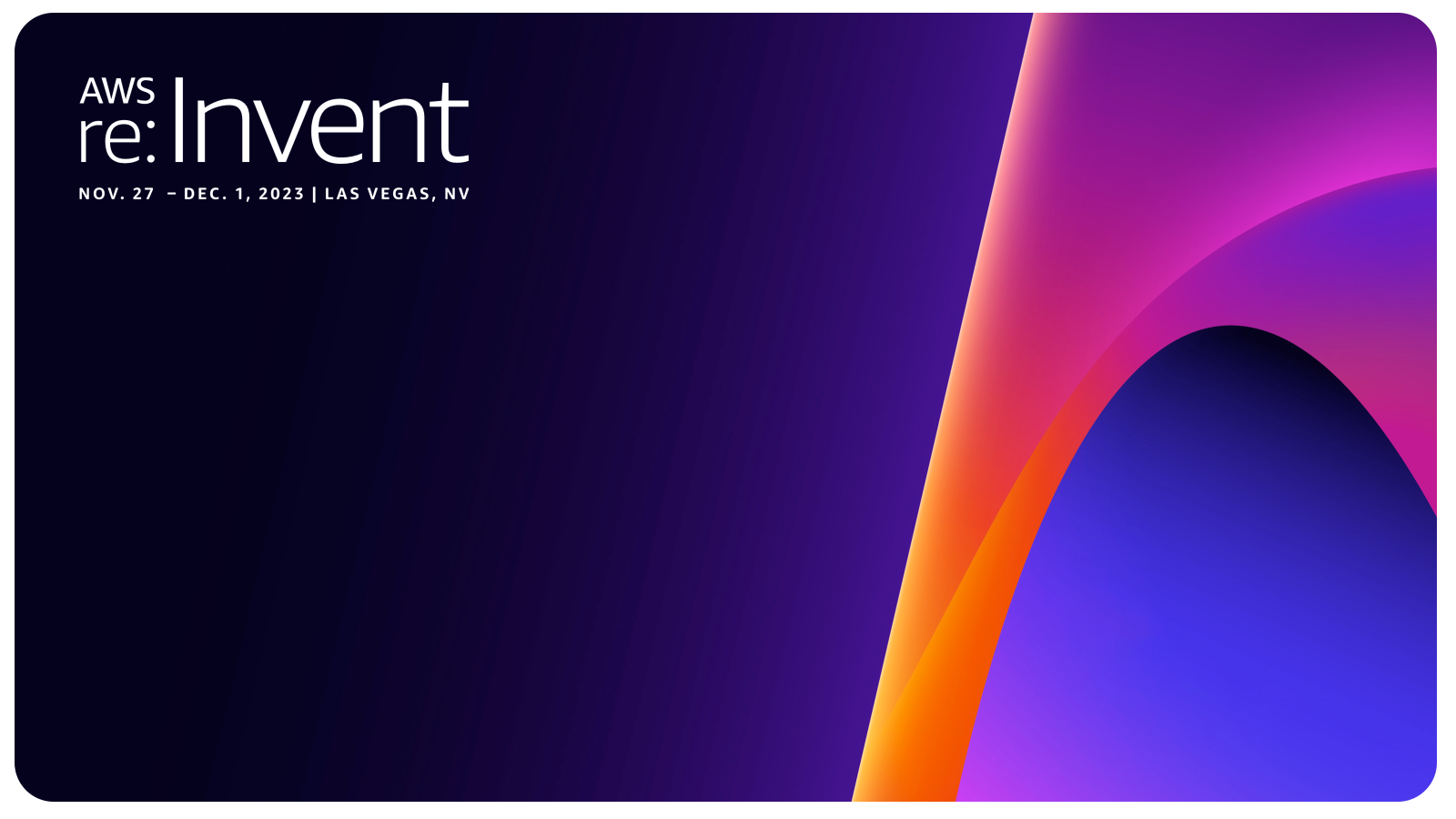Biggest re:Invent 2023 takeaway? You have to be tough to be a partner working with Amazon Web Services (AWS) cloud infrastructure and services.
An AWS partner organization needs to be tough in terms of its ability to deliver cloud-centric technologies to the required level of certification, specification and regulatory affirmation.
An AWS partner organization needs to be tough in terms of approach to AI bias and capability to mitigate hallucinations in this fast-developing field. An AWS partner organization needs to be tough in relation to its documentation and software application developer training provision. An AWS partner organization needs to be tough in terms of its approach to environmental, social & governance (ESG) initiatives and standards.
But perhaps most of all, an AWS partner organization needs to be tough in terms of its ability to turn up to the AWS re:Invent convention every year and attempt to be heard above the plethora of other AWS partners all vying for share of voice and, indeed, above AWS itself.
The AWS Partner Network (APN) is a global community of cloud architecture and infrastructure specialists from more than 150 countries that includes individual Global Systems Integrators (GSIs) and Independent Software Vendors (ISVs) from across 150 countries. In terms of what we might attempt to call ‘vendor partners’ within the APN network as a whole i.e. the kind of organization that might typically take a sponsorship role at AWS re:Invent and also attend the show with its own exhibition stand and consultant professionals, we might estimate that there could be 200-300 branded technology vendors in this space.
Qwiet AI
Seeking insight into what some of the larger organizations in the list have been up to, we noticed Qwiet AI, a developer-focused application security (AppSec) specialist that works to provide AI-powered detection of vulnerabilities in code. Earlier this year, the company announced a series of new technologies intended to help software developers to stay in a highly productive ‘flow state’ when building applications.
“We are myopically focused on ensuring our preZero platform delivers on our promise to keep the developer community engaged in the creation of new products and features,” said Stuart McClure, CEO of Qwiet AI. “As a former coder myself, I could not be more excited to announce these new capabilities as proof points of reducing the noise inherent in the AppSec space.”
New this year from Quiet AI in its preZero platform are several new and enhanced capabilities, including a new UI/UX to deliver views tuned to specific use cases and allow quick navigation to material that matters most to a specific user, be it a developer, security professional or executive leadership.
There is also a Qwiet Button, which activates several key filters including vulnerability criticality, reachability and exploitability to display those vulnerabilities that are most urgent and in need of remediation allowing developers to focus on what matters most. In addition here we also find new language support, which includes support for Kotlin Backend (mobile Kotlin is already supported) and PHP, both at the request of customers.
MongoDB
MongoDB was grasp-the-nettle enough to put its AWS re:Invent news out in the hands of press and analysts early. This year the company has made note of its plans to integrate MongoDB Atlas Vector Search with Amazon Bedrock to enable organizations to build next-generation applications on AWS.
MongoDB Atlas Vector Search uses a business’s operational data to bring GenAI (GenAI) and semantic search capabilities into applications for (what the company claims is) more ‘engaging and customized’ end-user experiences. This integration is promised to make it easier for developers to create applications on AWS that use GenAI to complete complex tasks and deliver up-to-date responses based on proprietary data processed by MongoDB Atlas Vector Search.
“Customers of all sizes tell us they want to take advantage of GenAI to build next-generation applications and future-proof their businesses. However, many customers are concerned about ensuring the accuracy of the outputs from AI-powered systems while protecting their proprietary data,” said Sahir Azam, chief product officer at MongoDB. “With the integration of MongoDB Atlas Vector Search with Amazon Bedrock, we’re making it easier for our joint-AWS customers to use a variety of foundation models hosted in their AWS environments to build GenAI applications that can securely use their proprietary data to improve accuracy and provide enhanced end-user experiences.”
Amazon Bedrock is a managed service from AWS that offers a choice of foundation models (FMs) via a single API, along with a set of capabilities to build GenAI applications with security and privacy. With MongoDB as a knowledge base for Amazon Bedrock, users are supposed to be able to build GenAI features with reduced hallucinations and deliver more accurate responses. Users can also build GenAI apps on AWS that can act on data processed by MongoDB Atlas Vector Search.
Red Hat
It’s tough to get noticed amongst the hundreds of AWS services and thousands of marketplace offerings. This isn’t anything new for Red Hat which is used to swimming amongst over one million open source projects. Most of the cloud community knows the Linux heritage of Red Hat Enterprise Linux and expansions of the organization into containers and Kubernetes with OpenShift and automation with Ansible. Red Hat is a long-time partner of AWS; the latest news this week will hit on GenAI with IBM watsonx, of which Red Hat is the underpinning layer, including on AWS.
“AWS customers want both flexibility and to take advantage of new innovations in the cloud and surrounding ecosystem. Red Hat is a key partner to help customers in their adoption of the latest technologies while keeping what they need from previous generations across datacenter, public cloud and edge environments.” said Stu Miniman, senior director of Red Hat Hybrid Platforms. “It is exciting to see the customer adoption and excitement around both first party offerings like Red Hat OpenShift Service on AWS, as well as the full portfolio of Red Hat software now in the AWS marketplace. Whether you’re looking for help in migrating applications to the cloud or taking advantage of the latest in GenAI, Red Hat has offerings that integrate deeply into AWS to help you on your journey.”
Precisely (absolutely, even)
Choosing to nestle itself in the ‘we’re named after an adverb’ group of companies that like that kind of thing, Precisely is a data integrity specialist with offices in eight countries across four continents. The company used AWS re:Invent 2023 to expand its AWS mainframe modernization data replication service. Customers will now have a capability to replicate IBM i series data to the AWS Cloud in real-time.
With 35 years in the market, IBM i systems play a role for many organizations with transaction processing needs. But as companies strive to become more data-led, the pressure is on these businesses to ensure that valuable data residing on IBM i systems can be reliably accessed for agile and confident decision-making.
“AWS and Precisely empower our customers to build trust in their data,” said Bill Platt, general manager for migration services at AWS. “By integrating data from midrange systems directly onto AWS, customers can rely on their data to be the driving force for business innovations and ensure they are deriving maximum value from their infrastructure investments.”
The AWS mainframe modernization data replication with Precisely service for IBM i systems is marketed as a means of helping users eliminate data silos associated with legacy systems to fuel even more powerful analytics, machine learning and AI on AWS and support modernization initiatives.
Starburst (not the candy)
We also heard some AWS partner toughness emanating out of Starburst – no, not the candy, the data lake analytics platform company, silly. This year Starburst has announced new capabilities hoped to enable organizations to build and scale game-changing data applications without compromising on performance or cost.
“Data-intensive initiatives like AI require a solid data foundation to be successful,” said Justin Borgman, co-founder & CEO of Starburst. “We provide that foundation, giving our customers the ability to quickly access and analyze all their data in order to scale applications from the first hundred users to the first thousand and beyond.
“We ensure optimal performance even with high concurrency and exponentially growing data volumes. The new streaming ingest, data maintenance and governance automations and data sharing capabilities in Starburst make it remarkably easy for teams to build, deploy and scale applications on top of the data lake.”
New features in Starburst Galaxy are said to help customers simplify development on the data lake by unifying data ingestion, data governance and data sharing on a single platform. Interactive applications oftentimes require the scalability and cost-efficiency of a data lake, but building and maintaining that data lake is complex and time-consuming for data teams. To overcome these challenges, Starburst has added support for near real-time analytics with streaming ingestion; automated data governance and maintenance, plus universal data sharing with built-in observability and self-service analytics powered by AI.
LaunchDarkly
If there’s a company with an unusual name, then it’s LaunchDarkly. As explained here, the organization is so named because software application developers often need to launch new product features ‘without visibility’ so that they are not apparent to users while they are being tested, finessed and finalized. This process is done via the use of feature flags (a coding approach that allows developers to enable or disable a feature without modifying the source code or requiring a redeploy) and LaunchDarkly delivers a SaaS platform for developers to manage feature flags.
The company used its appearance at AWS re:Invent 2023 to announce an early access preview of enhanced experimentation capabilities using GenAI, powered by Amazon Bedrock. As we have previously noted (but can underline again) Amazon Bedrock is a fully managed service that makes FMs from leading AI companies accessible via an API to build and scale generative AI applications.
Because software engineering teams struggle to quickly test, gather accurate results and iterate within the products they build, they often fall into the use of unreliable experimentation practices that are riddled with complex processes and long testing cycles that keep product development disconnected from measuring value. Using Amazon Bedrock, LaunchDarkly is able to reduce setup complexity and enhance product experimentation by rapidly generating new experiment variations, speeding up test and iteration cycles securely and responsibly.
“Until now it has not been possible to precisely test at such an efficient speed to make sure that every software feature is the exact fit for its audience. But now developers can achieve this by using the power of GenAI as experimentation rocket fuel alongside LaunchDarkly,” said Dan Rogers, CEO, LaunchDarkly. “Now, instead of manually testing a small, limited number of options, software teams can instantly expand their testing surface automatically through new variations, to get the absolute best possible outcome for their end users.”
LaunchDarkly is one of the first organizations to access and make use of the AWS GenAI Innovation Center, and is using the specialized guidance from the program to help inform LaunchDarkly’s latest advancement with GenAI.
Nasuni
Nasuni founder and CTO Andres Rodriguez was focused on the massive potential of cloud before anyone called it cloud. He deployed what we’d now consider a cloud service while CTO of The New York Times in the early 2000s. Today, AWS partner Nasuni is a hybrid cloud storage company that offers scalability, built-in security and fast edge performance using a cloud-native architecture.
The Nasuni File Data Platform delivers operational excellence by consolidating NAS and backup, eliminating data silos and making management easy and flexible without changes to apps or workflows. Its built-in security offers proactive defense and rapid recovery, lowering organizations’ risk from the detrimental effects of ransomware attacks and other disasters. The company says that customers are now replacing legacy file storage and enhancing data protection with the Nasuni File Data Platform to store, rapidly access and protect files across remote locations.
“AWS is important to Nasuni’s go-to-market structure and strategy,” said Matthew Grantham, head of worldwide partners at Nasuni. “But really, it’s not ‘just’ AWS we’re talking about here; it’s also the organization’s wider key partner ecosystem that drives value through the hyperscaler platform itself. As we help companies bridge the gap and move from legacy to tomorrow, we must partner with the companies that ‘get it’ i.e. that recognize the need to evolve. We are continuously innovating with AWS to create ways for customers to achieve outcomes through cloud.”
… and the re:Invent winner is
We don’t need to pick a winning AWS partner, but AWS did at various levels. Software services for communications and media specialist Amdocs was the recipient of a 2023 Geo and Global AWS Partner Award. The Geo and Global AWS Partner Awards recognize a range of AWS partners whose business models have embraced specialization, innovation and cooperation over the past year. Digital operations management company PagerDuty was also recognized in this space.
Like any major technology organization of its scale, awarding one single partner of the year award is not prudent. Instead, AWS chooses to recognize an innovation maverick, a sustainability champion and a social impact leader, a design winner, an outstanding collaboration organization and so on.
The partner pavilion at AWS re:Invent itself is expansive and enormous and no attendee could hope to visit every stand/booth in the duration of the show. The best advice might be: pick one of these, a big name brand that you know, some small but interesting minnows that you don’t… and anyone else who offers you free socks or jelly beans.




